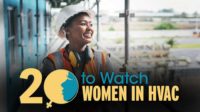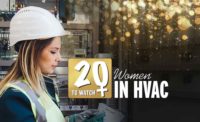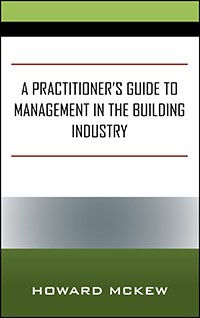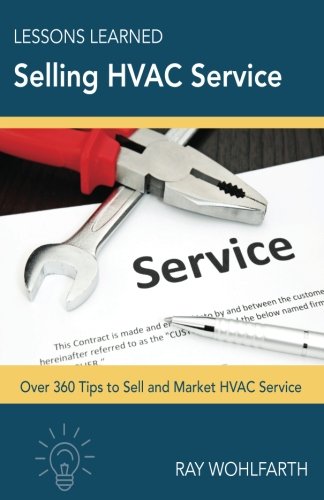Name: Dascha Whitmore
Title: Process Safety Management (PSM) Specialist, Stellar
Age: 40
Educational Experience: Business Administration Degree from Eastern Mennonite University
Organizational Affiliations/Achievements/Awards: Associate Member and 2018 Felix Anderson Award Recipient, Refrigerating Engineers and Technicians Association (RETA) Member; Vice President, Blue Ridge RETA Virginia Chapter; National RETA Marketing Committee Chairman; Education and Marketing Committee Member, the International Institute of Ammonia Refrigeration Member; and Education Committee Member of the Global Cold Chain Alliance (GCCA)
What caused you to/when did you fall in love with engineering?
If you ask my mom, she'll tell you I've loved engineering since I was a young kid. I've always enjoyed taking things apart just to see how they worked, from toys to stereos. Mind you, putting things back together was a different story. I liked the challenge and was always looking for the next thing to learn — and that's stuck with me to this day. I love that my job allows me to do something different every day, whether it's determining the mechanical integrity of equipment or developing protocols for responding to natural disasters. Plus, I get to work on a variety of projects across different markets, which keeps things interesting.
Working in process safety management requires creative problem-solving skills to anticipate and plan for a lot of potentially dangerous "what if" scenarios. Sometimes that means you need to come up with some unique solutions or account for unusual circumstances. For example, I never thought I'd be preparing an emergency response plan in the event of a rooftop hot air balloon landing, but I did just that the other month. (That was a first!) Getting to do challenging, interesting, and meaningful work is what I really love about engineering.
What has been the most rewarding aspect of working in the skilled trades?
I love seeing a project come together with a successful completion, especially a brand-new building. Witnessing the tangible results of everyone's collaborative hard work is rewarding. That said, the end of a project is often bittersweet, too, because it may be a couple of years before I see those clients again.
Another rewarding moment happened recently at an industry conference. One of the student attendees told me, "I want to be like you one day." I was taken aback because I've never thought of myself as a role model, but if I get to be that for young women who want to work in a traditionally male-dominated field like industrial refrigeration, then I think that's awesome.
Meeting with and engaging these young people who are considering a career in a skilled trade is super rewarding in itself. Through my involvement with RETA, I've had the opportunity to meet kids as young as 14 to educate and share the various career paths industrial refrigeration offers. I've had the privilege of mentoring a young woman who recently passed the Certified Assistant Refrigeration Operator (CARO) certification exam and is now doing great in her new role. What could be more rewarding than that?
Describe the proudest moment in your career.
I would have to say one of my proudest career moments was organizing a RETA regional safety and training expo that drew 400 attendees. For someone who doesn't have any formal background in marketing or event planning, it was really neat to bring people together and see that event succeed.
I'm also proud to be the vice president of RETA's Virginia - Blue Ridge chapter after founding it in 2018. I wanted to start the chapter in order to serve professionals in the western part of the state. Prior to that, the nearest chapter was a several-hour drive.
We started with only $500 and five people at our first meeting. As a single mom, I began to wonder if this was an overly ambitious mistake. Today, we have 87 active members and eight times the monthly attendance compared to when we first started. That's been incredibly humbling and cool to see. I was honored to ultimately receive RETA's Felix Anderson Award, which recognizes an outstanding individual who has contributed to enhancing the image of the profession. Accepting the award on that stage was a memorable moment I'm proud of, no doubt.
What challenges do women face in this profession? Can you give a personal example? Why aren’t there more women in engineering? How can we increase the number of women in engineering?
It's no secret that industrial refrigeration is a traditionally male-dominated field. There aren't many places where the line for the women's restroom is shorter than the men's, but an industrial refrigeration conference is usually one of them. This can come with its challenges. I've heard a number of things over the years, some more recently than you might think. Everything from "You need to have thicker skin" to "Women should stay home and make cookies" laughed off as a joke. Of course, anyone who knows me knows I have thicker skin than most and fit in just as well as the guys. False assumptions about women may be why there traditionally have been less of us in the industry, to its detriment.
It has been encouraging to see some change, however. Just the other week there were a ton of women in the bathroom line at a refrigeration conference. (A minor inconvenience I was actually excited about!) As traditional obstacles and assumptions have been broken down, more women have felt empowered to pursue careers in this profession, but we can always do better. My hope is that by increasing education about the industry in schools and tech programs, we can encourage more women to consider careers they may have otherwise felt were inaccessible. We should also create more industry groups and subcommittees to focus on the issue and attract women to the profession. We're headed in the right direction, and I'm excited for what's ahead.
What does your day-to-day job entail?
I conduct a lot of training, which I really enjoy because educating people on how to remain safe when working in hazardous environments is so important. Another aspect of the educational work involves writing standard operating procedures (SOPs) for plant personnel on how to operate valves and other equipment. I also game out a lot of "what if" hazard scenarios and develop strategies on how to prepare for and respond to them. My role entails some mechanical integrity work, too. At the end of the day, I'm an advocate for my clients and am always emphasizing that safety is in everyone's interest.
What drives/motivates you every day?
My son. He was born weighing only 1 pound, 7 ounces, and today he's a fun, loving, healthy 13-year-old. The adversity he's overcome is harder than anything I've faced. He inspires me.
Professionally, I'm motivated by the vision of a world where we never have a PSM-related accident. While I recognize that's an unlikely reality, that shouldn't stop us from trying to get close. That's what drives me in my career. It's all about everyone going home safely at the end of the workday.
How has the COVID-19 pandemic impacted you personally and professionally?
The pandemic has a lot of negatives, of course, but it's also forced many of us to learn and work virtually and think creatively. That's given our RETA group more opportunities to engage with young people about careers in the industry. Whereas we may have only been able to visit a school once a year before, now virtual events and webinars are more mainstream.
What remains on your engineering bucket list — what do you aspire to do that you haven’t accomplished yet?
I aspire to gain certification as a RETA Authorized Instructor (RAI).
What’s one thing no one knows about you?
I've played the piano since I was 3 years old. It’s a great stress reliever.
List any mentors who’ve helped you succeed and describe exactly how they’ve shaped your success.
Personally, my mother has always been a mentor and an inspiration to me. As a single mom, she went back to get a college education because she wanted me, her 9-year-old daughter, to be proud of what she did for a living. She always worked hard to make sure my sister and I were OK.
Professionally, I'm grateful to have mentors like Ray Urban, the current president of my local RETA chapter, who pushed me to work harder and has always been one of my biggest cheerleaders in the industry. Gene Dumas, who reminds me that women have just as much a place in our industry as men and has always encouraged me in my pursuit of becoming an RAI), is another great mentor.
What advice do you have for prospective female engineers considering entering the field?
I would encourage them to be bold, trust their abilities, assert themselves, and stay curious. This is a rewarding career and industry with opportunities for growth and change. The industry has been largely missing out on what women can bring to the table — you can be a part of that change.






